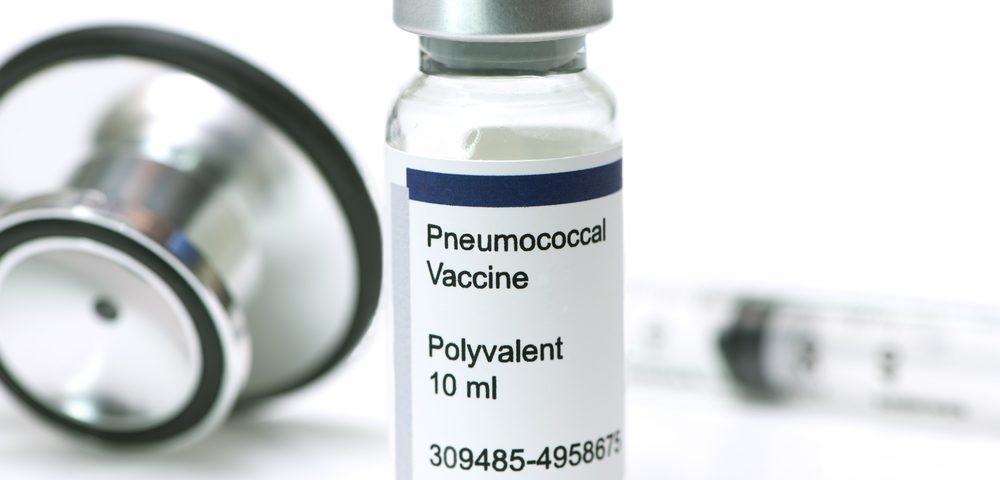In my previous column, I reminded you to get a flu shot before the end of October. I also shared some advice to prevent exposure to the virus.
In this column, I’d like to discuss another important reason to avoid catching the flu: It is a common cause of pneumonia. According to the American Lung Association, in addition to the flu, other viruses, fungi, and bacteria can also cause pneumonia.
Pneumonia is an infection in which one or both lungs become inflamed. The air sacs in the lungs may fill with fluid or pus, causing shortness of breath, a productive cough, and chest pains when breathing or coughing. Other symptoms are similar to those of a cold virus or the flu and include nausea, vomiting, diarrhea, fatigue, fever, and chills. A lower than normal body temperature can be a symptom in adults 65 and over and in those with weakened immune systems.
A study in the American Journal of Gastroenterology found that Crohn’s and ulcerative colitis patients are at a higher risk for developing pneumococcal pneumonia than the general population. This lung infection, which is the most common serious form of pneumococcal disease, is caused by the Streptococcus pneumoniae bacterium.
The study found that the number of inflammatory bowel disease (IBD) patients who developed pneumonia was almost double that of non-IBD patients. Ulcerative colitis patients were one and a half times as likely as non-IBD patients to contract the infection, while Crohn’s patients were more than twice as likely.
Researchers also examined IBD treatment types and the risk of pneumonia in those with Crohn’s and ulcerative colitis. Patients taking corticosteroids showed the greatest increased risk, and those on an aminosalicylate or a proton pump inhibitor also had a higher risk. The possibility of developing pneumonia was slightly increased in patients treated with thiopurines and biologics. Patients taking calcineurin inhibitors had no significant risk.
As IBD patients are more susceptible to pneumonia, and those who are taking immunosuppressants are particularly vulnerable, the Advisory Committee on Immunization Practices (ACIP) recommends that all IBD patients receive pneumococcal vaccines.
In the United States, two types of pneumococcal vaccines are available: the pneumococcal conjugate vaccine and the pneumococcal polysaccharide vaccine. The pneumococcal conjugate vaccine (PCV13) is recommended for children under 2, adults 65 and older, and people ages 2 to 64 with certain medical conditions. The pneumococcal polysaccharide vaccine (PPSV23) is recommended for people 65 and older, cigarette smokers ages 19 to 64, and people ages 2 to 64 with certain medical conditions.
The ACIP recommends that all IBD patients, regardless of age, receive both vaccines. The PCV13 vaccine should be given first and followed eight weeks later by the first dose of the PPSV23 vaccine in immunocompromised patients. Immunocompetent patients should receive the first dose of PPSV23 a year or more after the PCV13 vaccine. A second dose of PPSV23 is recommended after five years, and a third dose upon reaching the age of 65. If the patient has previously received the PPSV23 vaccine, they should be vaccinated with PCV13 at least one year later, regardless of immunity.
Like the flu vaccine, neither of the pneumonia vaccines are 100 percent effective. Following my previous hygiene advice, thorough hand-washing, cleaning surfaces, and taking precautions when sneezing and coughing may help to prevent the spread of the disease. Additionally, quitting smoking and limiting exposure to secondhand smoke can lower the risk of pneumonia.
I plan to get a pneumonia shot at my annual physical at the end of the month. However, though I am meticulous about keeping track of my medical history, I can’t find a mention of an initial vaccine in my online medical chart with my primary care physician. My transplant hepatologist has a record of a vaccination in 2014, which if correct, would make this upcoming shot my second dose. I’m curious to see which vaccine I receive at my appointment and if I’ll need to return for another shot.
***
Note: IBD News Today is strictly a news and information website about the disease. It does not provide medical advice, diagnosis, or treatment. This content is not intended to be a substitute for professional medical advice, diagnosis, or treatment. Always seek the advice of your physician or other qualified health providers with any questions you may have regarding a medical condition. Never disregard professional medical advice or delay in seeking it because of something you have read on this website. The opinions expressed in this column are not those of IBD News Today, or its parent company, BioNews Services, and are intended to spark discussion about issues pertaining to IBD.


Everything is very open with a precise description of
the challenges. It was truly informative. Your
website is useful. Thanks for sharing!